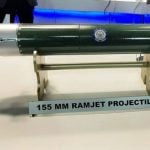The armed forces play a crucial role in safeguarding the sovereignty and territorial integrity of a nation. Yet, for many civilians, the day-to-day lives and experiences of soldiers remain shrouded in mystery. This disconnect often gives rise to a plethora of stereotypes – some true, others wildly inaccurate. As we delve into the realities of military life, it’s essential to separate fact from fiction and gain a deeper appreciation for the extraordinary individuals who don the uniform.
Stereotype 1: Military Soldiers are Rigid
One common misconception is that soldiers are inflexible, adhering to a strict, single-minded approach to their duties. However, the modern military places a strong emphasis on adaptability and innovation. Soldiers are trained to think critically, devise creative solutions, and respond effectively to evolving situations. Their discipline is often mistaken for rigidity, but in reality, it is a testament to their ability to maintain order and efficiency, even in the face of complex challenges.
Adaptability and Problem-Solving
Contrary to popular belief, soldiers are not mere automatons, blindly following orders. They are trained to be versatile problem-solvers, capable of adjusting their tactics and strategies to achieve mission objectives. The military’s emphasis on adaptability and critical thinking equips soldiers with the skills to navigate diverse and dynamic environments.
Embracing Change and Innovation
The armed forces are constantly evolving, incorporating new technologies, tactics, and best practices. Soldiers are expected to be receptive to change and proactively seek innovative ways to enhance their performance. This mindset of continuous improvement and adaptability is essential in the rapidly changing landscape of modern warfare.
Stereotype 2: Soldiers Only Know How to Give and Take Orders
Another common stereotype is that soldiers are merely conduits for orders, lacking the ability to think independently. However, the reality is that modern military personnel are highly educated, analytical, and capable of making informed decisions.
Analytical Thinking and Decision-Making
Effective military operations require a significant degree of analytical thinking and decision-making. Soldiers must carefully assess the situation, weigh the potential consequences, and make calculated choices to achieve the desired outcomes. This level of critical thinking is essential in the fast-paced and high-stakes environment of military operations.
Empowered to Use Their Judgment
While soldiers are trained to follow orders, they are also empowered to use their own judgment and discretion when necessary. They are encouraged to question orders that seem illogical or ineffective, fostering a culture of open communication and collaborative problem-solving.
Stereotype 3: Soldiers are Always Posted on the Borders
The perception that all soldiers are permanently stationed on the borders is a common misconception. The reality is that the modern military is a vast and diverse organization, with personnel serving in a wide range of roles and locations.
The Breadth of Military Assignments
The armed forces encompass a wide array of specialties, from combat operations to logistics, intelligence, and support functions. Soldiers may be deployed to various locations, including domestic military installations, training facilities, or even international peacekeeping missions, depending on their specific roles and the needs of the military.
Rotation and Tenure
Soldiers typically have a tenure of 2.5 to 3 years in a particular assignment or location. The military actively rotates personnel to ensure they gain diverse experiences and maintain a well-rounded skill set. This rotation system helps to prevent soldiers from being permanently stationed on the borders, as is often assumed.
Stereotype 4: Soldiers Get a Lot of Free Things
The belief that soldiers enjoy an abundance of free perks and benefits is a common misconception. While the military does provide certain subsidized services and facilities, these are not entirely free.
Subsidized Prices, Not Free Handouts
The Canteen Services Department (CSD) provides military personnel and their dependents access to goods and services at discounted, subsidized prices. However, these items are not entirely free, as the soldiers still contribute a portion of the cost.
Housing Arrangements
Similarly, the Military Engineering Services (MES) provides housing for military personnel, but these accommodations are not free. Soldiers are required to pay a nominal rent, which is deducted from their salaries.
Stereotype 5: Soldiers Joined the Army as a Last Resort
The notion that soldiers only join the military when they have exhausted all other options is a flawed assumption. There are numerous reasons why individuals choose to serve in the armed forces, and it is often a deliberate and purposeful decision.
Patriotism and Dedication to Service
Many soldiers are driven by a deep sense of patriotism and a desire to serve their country. They see the military as a noble calling, a way to contribute to the nation’s security and well-being.
Familial Tradition and Opportunity
For some, joining the military is a continuation of a family legacy, with generations of relatives having served before them. Others may view the armed forces as a means to access education, training, and career opportunities that might not be readily available in the civilian sector.
Stereotype 6: Military Children are Snobbish and Inadaptable
The perception that children of military families are snobbish and unable to adapt to new environments is a misconception that fails to recognize the unique challenges and experiences they face.
Resilience and Adaptability
Military children often have to navigate the challenges of frequent relocations, adapting to new schools, and coping with the absence of a parent deployed on duty. This exposure to diverse cultures and environments fosters a remarkable level of resilience and adaptability, as they learn to embrace change and build connections with people from all walks of life.
Developing Empathy and Respect
Growing up in a military family instills values such as discipline, respect, and a deep appreciation for the sacrifices made by their parents and the broader military community. These children often develop a strong sense of empathy and understanding, which can counter the notion of snobbish behavior.
Stereotype 7: Soldiers Can Sleep Anywhere, Anytime
This stereotype holds a significant degree of truth, reflecting the adaptability and resilience of military personnel.
Adaptability and Discipline
The demanding nature of military training and operations requires soldiers to be able to sleep in a variety of environments, from the comfort of a barracks to the confines of a military vehicle or even the open field. This ability to rest and recharge, regardless of the circumstances, is a testament to their discipline and adaptability.
Coping with Fatigue and Stress
Soldiers often face long hours, high-stress situations, and physical exertion, which can take a toll on their energy levels. The capacity to sleep anywhere, anytime, enables them to maintain their operational readiness and effectiveness, even in the face of extreme fatigue.
Stereotype 8: A Soldier Always Remains a Soldier
This stereotype holds true, as the values, habits, and behaviors instilled during military service often become an integral part of a soldier’s identity, even after retirement.
Enduring Discipline and Professionalism
The emphasis on order, discipline, and attention to detail that is ingrained in soldiers during their training and service tends to remain a defining characteristic, even in their civilian lives. This disciplined approach often sets them apart and makes them easily recognizable in a crowd.
Adaptability and Problem-Solving
The ability to think critically, adapt to changing circumstances, and solve problems efficiently, which are essential skills in the military, often carry over into a soldier’s post-retirement life. This adaptability and problem-solving mindset can be a valuable asset in various civilian pursuits.
Stereotype 9: Soldiers are Extremely Organized
This stereotype is firmly rooted in the realities of military life, as organization and discipline are fundamental to the successful execution of military operations.
Attention to Detail and Cleanliness
Soldiers are trained to maintain a high level of organization and attention to detail in their personal and professional lives. This extends to their living spaces, equipment, and daily routines, where cleanliness and order are paramount.
Systematic Approach to Tasks
The military’s emphasis on efficiency and effectiveness is reflected in the systematic manner in which soldiers approach their tasks. They are trained to plan, execute, and follow through on their duties in a meticulous and organized fashion, ensuring the successful completion of their objectives.
Conclusion
As we have explored, the stereotypes surrounding soldiers are a complex mix of truth and fiction. While some beliefs hold valid, others are grossly exaggerated or entirely disconnected from reality. By gaining a deeper understanding of the realities of military life, we can develop a greater appreciation for the remarkable individuals who dedicate their lives to protecting our nation’s security and values. As the armed forces continue to evolve, it is essential to remain open-minded and receptive to the diverse experiences and contributions of our soldiers, who serve as the backbone of our national defense.
Also Read:













